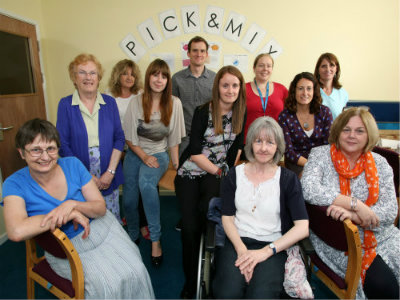
Social workers in Shropshire have found it ‘liberating’ to deliver services in a social work practice rather than the local authority, a report has found.
The final report of the Local Government Association’s adult social care efficiency programme highlighted Shropshire’s People2People social work practice as a model that had strengthened social work’s “community presence” and cut bureaucracy. The LGA programme reviewed cost-saving projects at 54 local authorities over a three-year-period.
The People2People social enterprise started in 2012 as one of seven Department of Health pilots designed to test the contracting out of statutory adult social work from councils to independent organisations. An evaluation of the DH pilots is being prepared by King’s College London. People2People has had its funding extended until April 2015. Two of the other pilots have been discontinued, with services brought back in-house.
More on social work practices
‘Professional freedom, not privatisation’: life inside the People2People social work practice
On People2People, the LGA report said: “The effect on staff members, the majority of whom have previously worked in social work roles in the council, appears to be liberating and team members describe a sense of empowerment, motivation and improved job satisfaction,”
“Teams have been encouraged to develop their own new ways of working and to trial new ideas…People2People offers a vision for social work that strengthens its community presence and accessibility.”
The wide-ranging LGA review highlights several other ‘innovative’ local authority programmes, including Torbay Care Trust’s integrated approach to reablement, Calderdale council’s new integrated ‘front-end’ service for adult social care and South Tyneside council’s social care contact centre.
Local authorities participating in the LGA programme had delivered savings of between 8-10% of their adult social care budgets over three years, the LGA report said. With the Treasury anticipating that councils will deliver 3% annual efficiency savings over the next three years, the challenge facing councils is “immense”, it added.
The LGA found that councils had delivered their savings by reducing the costs of care through cuts to “non-essential” services and staffing changes; and by managing demand by delivering models of care that “enable people to be more independent”.
“Significantly, only those councils that have developed a model based on decreasing dependency on social care and promoting independence have been able to achieve the higher level of savings that the future may require,” the report said.
“Despite the success to date, many councils are now expressing doubts as to whether savings can continue to be delivered at this rate without risking the safety of vulnerable people and staff.”


 Bournemouth, Christchurch and Poole
Bournemouth, Christchurch and Poole  Hampshire County Council
Hampshire County Council  Lincolnshire County Council
Lincolnshire County Council  Norfolk County Council
Norfolk County Council  Northamptonshire Children’s Trust
Northamptonshire Children’s Trust  South Gloucestershire Council
South Gloucestershire Council  Wiltshire Council
Wiltshire Council  Wokingham Borough Council
Wokingham Borough Council  Children and young people with SEND are ‘valued and prioritised’ in Wiltshire, find inspectors
Children and young people with SEND are ‘valued and prioritised’ in Wiltshire, find inspectors  How specialist refugee teams benefit young people and social workers
How specialist refugee teams benefit young people and social workers  Podcast: returning to social work after becoming a first-time parent
Podcast: returning to social work after becoming a first-time parent  Podcast: would you work for an inadequate-rated service?
Podcast: would you work for an inadequate-rated service?  Family help: one local authority’s experience of the model
Family help: one local authority’s experience of the model  Workforce Insights – showcasing a selection of the sector’s top recruiters
Workforce Insights – showcasing a selection of the sector’s top recruiters 

 Facebook
Facebook X
X LinkedIn
LinkedIn Instagram
Instagram
People 2people is the way forward and long may it continue